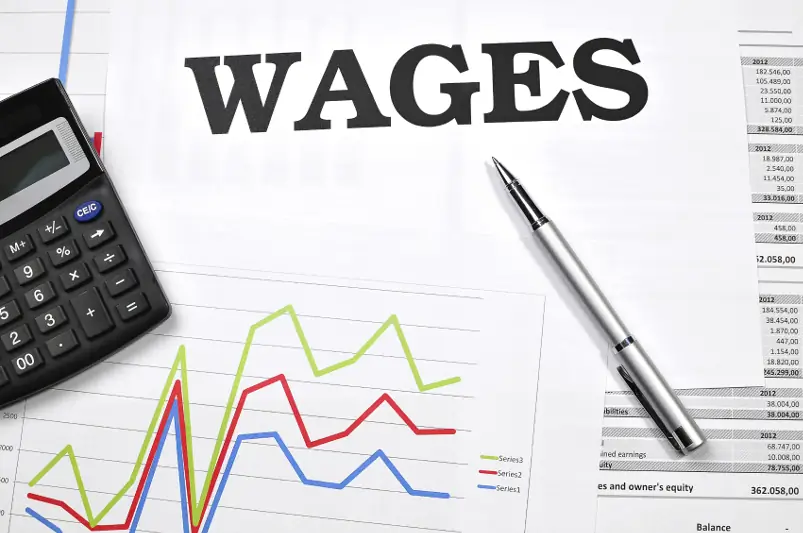

This article is for the website user engaging in serious legal research about California wage law before speaking to a lawyer about unpaid wages. We do not recommend that approach. It is better to simply pick up the phone and call (323) 525-1600 to talk to one our experienced wage lawyers. Nonetheless, the following are statements we have recently made in motions arguing when it is an employee must be paid. These statements reflect the policy in California about how employees should be paid wages.
 Employers have to pay employees for meal breaks, overtime, and all types of wages if they knew the employee was working, or should have known, Brinker v. Superior Court, 53 Cal.4th 1004, 1040 (2012); Donohue v. AMN, 11 Cal.5th 58, 61. 67-68 (2021); Jong v. Kaiser, 226 Cal. App. 4th 391, 395 (2014). “California Labor Code § 1194 explicitly provides: ‘Any employee receiving less than the legal minimum wage or the legal overtime compensation applicable to such employee is entitled to recover in a civil action the unpaid balance of the full amount of such minimum wage or overtime compensation,'” Ghory v. Al-Lahham, 209 Cal.App.3d 1487 (1989). “California statutes and wage orders have not adopted the federal de minimis doctrine,” Troester v. Starbucks, 5 Cal.5th 829, 842 (2018).
Employers have to pay employees for meal breaks, overtime, and all types of wages if they knew the employee was working, or should have known, Brinker v. Superior Court, 53 Cal.4th 1004, 1040 (2012); Donohue v. AMN, 11 Cal.5th 58, 61. 67-68 (2021); Jong v. Kaiser, 226 Cal. App. 4th 391, 395 (2014). “California Labor Code § 1194 explicitly provides: ‘Any employee receiving less than the legal minimum wage or the legal overtime compensation applicable to such employee is entitled to recover in a civil action the unpaid balance of the full amount of such minimum wage or overtime compensation,'” Ghory v. Al-Lahham, 209 Cal.App.3d 1487 (1989). “California statutes and wage orders have not adopted the federal de minimis doctrine,” Troester v. Starbucks, 5 Cal.5th 829, 842 (2018).
CALL (323) 525-1600 & hire a lawyer to recover your minimum wage, overtime, and unpaid wages
Under Morillion v. Royal Packing Co., 22 Cal. 4th 575, 582-583, and Mendiola, employees must be paid for the time spent on site waiting regardless of whether the employee is entitled to meal breaks under California Labor Code Section 512. The word "includes" introduces the "suffered or permitted to work" language of Wage Order No. 14-80. (Subd. 2(G).) Because "includes" is generally a term of enlargement (Ornelas v. Randolph (1993) 4 Cal. 4th 1095, 1101 [citations], the definition of "hours worked" is expanded by, rather than limited to, the time spent when an employee is "suffered or permitted to work." (Subd. 2(G).) Indeed, the two phrases--"time during which an employee is subject to the control of an employer" and "time the employee is suffered or permitted to work, whether or not required to do so" (ibid.)--can also be interpreted as independent factors, each of which defines whether certain time spent is compensable as "hours worked." Thus, HN2 an employee who is subject to an employer's control does not have to be working during that time to be compensated under Wage Order No. 14-80. (See Bono Enterprises, Inc. v. Bradshaw (1995) 32 Cal. App. 4th 968, 974-975 [citation] [interpreting the common meaning of "hours worked" in IWC wage order No. 1-89], disapproved on other grounds in Tidewater, supra, 14 Cal. 4th at pp. 573-574; Aguilar v. Assoc. for Retarded Citizens (1991) 234 Cal. App. 3d 21, 30.
 While cases interpreting the phrase "hours worked" have not thoroughly examined the definition's scope or defined the relationship between the two clauses, they nonetheless support the view that the "suffered or permitted to work" clause in Wage Order No. 14-80 does not limit the "control" clause under the definition of "hours worked." (Subd. 2(G); see, e.g., Bono, supra, 32 Cal. App. 4th 968; Aguilar, supra, 234 Cal. App. 3d 21; see also (1984) 36 Cal. 3d 403, 410 [citations] ["Code 7" meal breaks for police department employees can be counted as hours worked under a two-part analysis--whether the restrictions on employees are "primarily directed toward the fulfillment of the employer's requirements and policies," and whether employees are "substantially restricted during Code 7 time, so as to be unable to attend to private pursuits"]; Monzon, supra, 224 Cal. App. 3d at p. 48; id. at p. 50 (conc. & dis. opn. of Johnson, J.) [ambulance drivers who sleep in designated sleeping area are "subject to the control of the employer," and absent an exception excluding the time spent sleeping as compensable, it counts as "hours worked"]...
While cases interpreting the phrase "hours worked" have not thoroughly examined the definition's scope or defined the relationship between the two clauses, they nonetheless support the view that the "suffered or permitted to work" clause in Wage Order No. 14-80 does not limit the "control" clause under the definition of "hours worked." (Subd. 2(G); see, e.g., Bono, supra, 32 Cal. App. 4th 968; Aguilar, supra, 234 Cal. App. 3d 21; see also (1984) 36 Cal. 3d 403, 410 [citations] ["Code 7" meal breaks for police department employees can be counted as hours worked under a two-part analysis--whether the restrictions on employees are "primarily directed toward the fulfillment of the employer's requirements and policies," and whether employees are "substantially restricted during Code 7 time, so as to be unable to attend to private pursuits"]; Monzon, supra, 224 Cal. App. 3d at p. 48; id. at p. 50 (conc. & dis. opn. of Johnson, J.) [ambulance drivers who sleep in designated sleeping area are "subject to the control of the employer," and absent an exception excluding the time spent sleeping as compensable, it counts as "hours worked"]...
Similarly, in Aguilar, the Court of Appeal held that the time an employer required personal attendant employees to spend at its premises, even when they were allowed to sleep, should be considered "hours worked." As in Bono, the Aguilar court found that the employees were "subject to the control of an employer" and did not consider whether or not the employees were "suffered or permitted to work." (Aguilar, supra, 234 Cal. App. 3d at p. 30.) Instead, the court held the employees should be compensated for the time they spent sleeping while on the employer's premises, even though they performed no work during that time. (Ibid.)
We also reject Royal's contention that plaintiffs were not under its control during the required bus ride because they could read on the bus, or perform other personal activities. Permitting plaintiffs to engage in limited activities such as reading or sleeping on the bus does not allow them to use "the time effectively for [their] own purposes." (Bono, supra, 32 Cal. App. 4th at p. 975.), Morillion v. Royal Packing Co. (2000) 22 Cal.4th 575, 583-586.
We reaffirm our holding in Morillion that “[t]he level of the employer's control over its employees, rather than the mere fact that the employer requires the employees' activity, is determinative” concerning whether an activity is compensable under the “hours worked” control clause. (Morillion, supra, 22 Cal.4th at p. 587.) We also emphasize that whether an activity is required remains probative in determining whether an employee is subject to the employer's control. But, at least with regard to cases involving onsite employer-controlled activities, the mandatory nature of an activity is not the only factor to consider. We conclude that courts may and should consider additional relevant factors—including, but not limited to, the location of the activity, the degree of the employer's control, whether the activity primarily benefits the employee or employer, and whether the activity is enforced through disciplinary measures—when evaluating such employer-controlled conduct, Frlekin v. Apple Inc., 8 Cal. 5th 1038, 1056 (2020).
Call our law firm to find out if you should sue for unpaid wages. Our experienced wage lawyers can advise whether your case is worth bringing. We can help you decide whether you take the plunge and the file the lawsuit. Even if we cannot help you we may be able to refer you to a smaller law firm who can. We represent individuals, groups of employees, class actions, and PAGA actions for unpaid wages.
We only take lawsuits for unpaid wages on a contingency. This means you will only be charged out of any proceeds we are able to collect. Based upon the number of hours it takes a law firm to prosecute your case for unpaid wages you will end up paying an hourly rate far less than you could ever hire a lawyer for. For example, even if your case settles for $75,000 and the legal fee is $30,000 it ends up being $75.00 an hour the law firm makes if we spend 400 hours on your case. These days, it cost a law firm more than $75.00 an hour to pay a staff attorney. This means we are doing a public service by losing a few hundred dollars an hour to represent a single individual in a case for unpaid wages. Even if your case is $150,000 and we are paid $60,000 that is still $150.00 an hour for our legal services. Lawyers were last $150.00 an hour in late 1980s.
Call (323) 525-1600 for experienced lawyers who are paid a percent, if they win, when that percent does not equal an hourly rate you can hire a lawyer for. We also advance all costs. We do this because prosecuting wage theft is important!